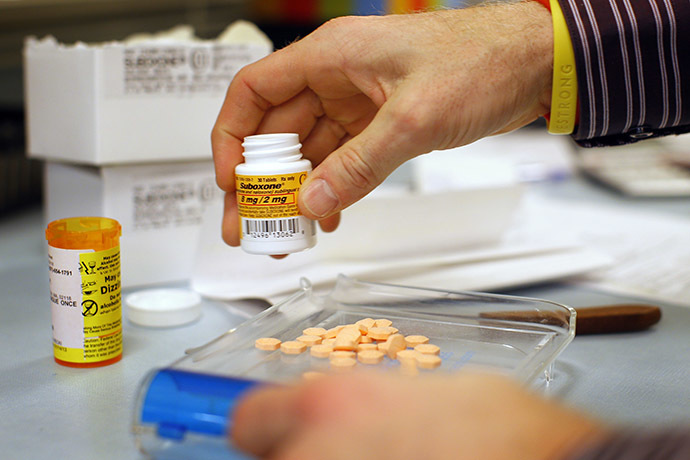Medicare’s ‘drugs for the deceased’ costing taxpayers

Medicare pays for medications even after a patient has died, and it is costing American taxpayers hundreds of thousands of dollars, according to the Health Department’s inspector general.
US Health Department investigators first raised eyebrows when they noticed a disproportionate amount of coverage for AIDS drugs dispensed to Medicare beneficiaries back in 2012. While sexually transmitted diseases are becoming an increasing problem among older people, that did not really explain the 1,600 Medicare recipients of AIDS drugs.
READ MORE:Feds investigating two dozen potential hacks targeting life-saving medical device
Even stranger was the fact that further investigations showed patients with no HIV diagnosis being prescribed the drugs anyway, and others receiving large quantities.
Department's inspector general says the Medicare rule allows payment for prescriptions filled up to 32 days after... http://t.co/8CzOY2e3PF
— Carl Ducharme (@DucharmeCarl) October 31, 2014
What investigators also discovered is that Medicare was paying
for prescriptions for 32 days after a patient’s death. When that
revelation came about, they did a narrow study of drugs to treat
HIV in 2012, and cross referenced them with death records. They
found that Medicare Part D paid for 348 drugs for 158 dead
people, costing taxpayers $292,381 – an average of $1,850 per
patient.
“Drugs for deceased beneficiaries are clearly not medically
indicated, which is a requirement for (Medicare) coverage,”
the inspector general report stated, according to the Associated
Press.

Of the 348 prescriptions dispensed for the dead beneficiaries,
nearly half were filled more than a week after the patient died.
In some cases, multiple prescriptions were filled on behalf of a
single dead person.
Medicare's "current practices allowed most of these payments
to occur," the report said.
The US government health insurance program, Medicare, provides
coverage to around 55 million seniors and disabled people. Its
prescription drug coverage, or Part D – with its annual budget of
$85 billion – is provided through private insurance plans, with
the federal government subsidizing the cost of prescription
drugs. Part D is often at the center of many scandals and scams.
Medicare Bought Medicines for Dead People http://t.co/23xS6CRW2m
— R.M. Sherman (@MichiganLaw2008) November 1, 2014
Now, questions are being raised about what happened to the
medications prescribed to the dead individuals, and whether some
were diverted to underground markets for resale. HIV drugs cost
about $1,700 for a month’s supply and are a common target for
fraud.
READ MORE:America’s $7.6 billion war on Afghan drugs fails, opium production peaks
As investigators have only examined one narrow sliver of Medicare
prescriptions, they think the overall program could being costing
tax payers millions of dollars.
"The payment policy is the same for all drugs, whether they
are $2,000 drugs to treat HIV or $4 generic drugs," the
report's team leader said.
A government watchdog agency says Medicare's prescription drug program kept paying for costly medications even... http://t.co/VJB7LVUSWw
— Amanda Langley (@Amanda_Langley) October 31, 2014
The report urged immediate changes to eliminate or restrict the
payment policy.
READ MORE:Killer cost of Ebola: World Bank warns of $33bn doomsday scenario
“After reviewing this report, [Medicare] has had preliminary
discussions with the industry to revisit the need for a 32-day
window," the Medicare head wrote in response, according to
AP.
Medicare said it is working on a fix.














